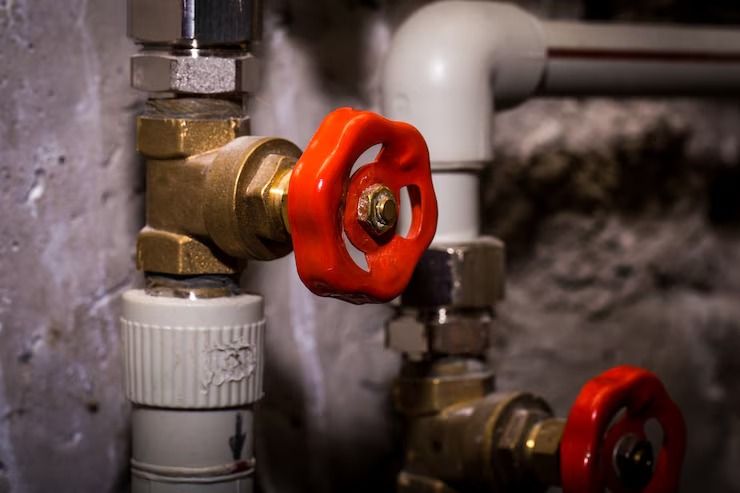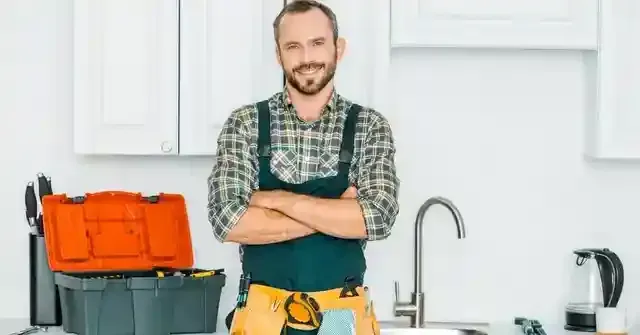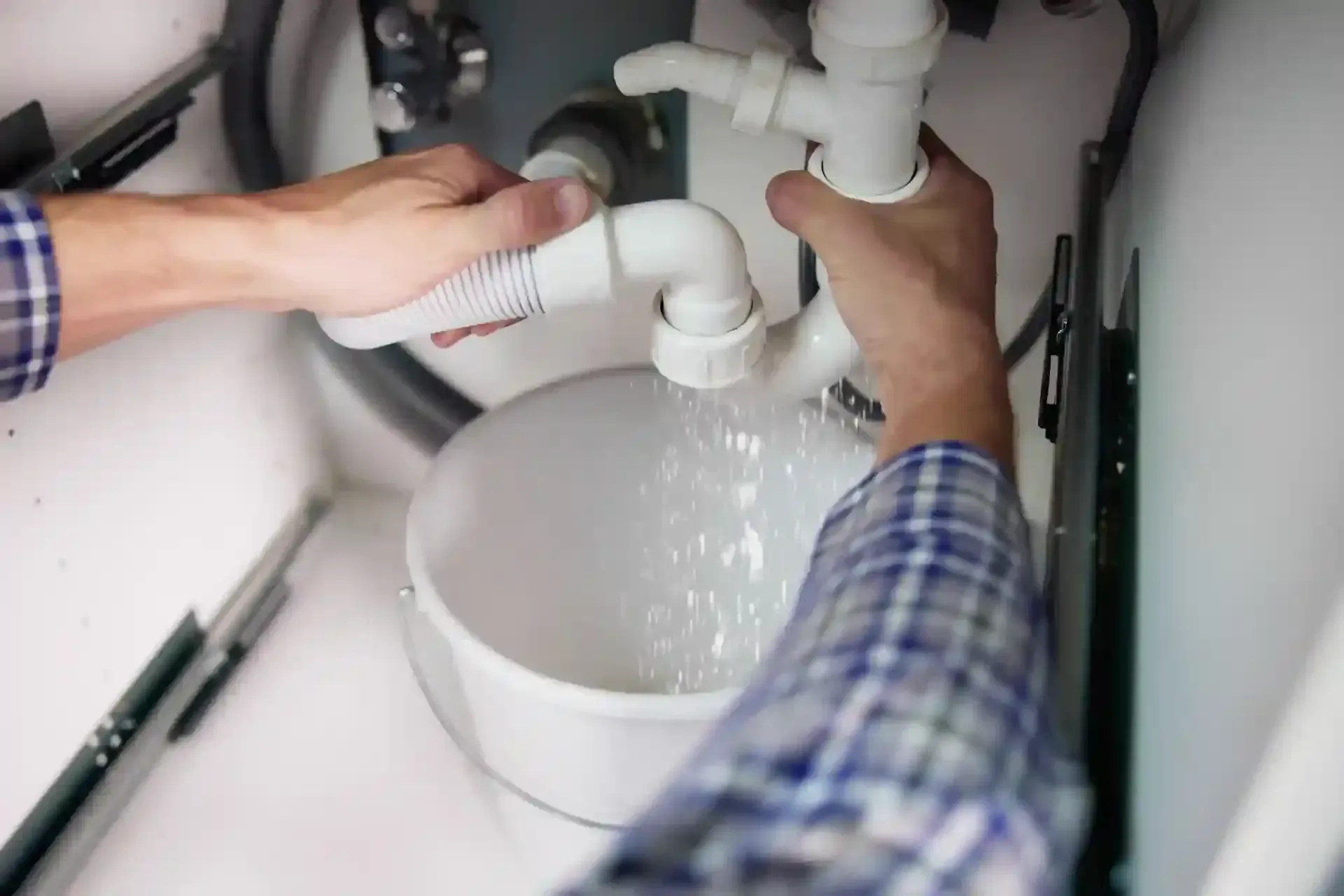Tips for Preventing Common Plumbing Issues
Plumbing issues can strike at the most inconvenient times, often causing unnecessary stress and costly repairs. Preventing common plumbing problems before they escalate is the key to maintaining a healthy home. Simple steps like regular pipe inspections, proper drain care, and mindful water usage can save you from major headaches down the road.
Being proactive is essential, and with a few preventative measures, you can avoid clogs, leaks, and even costly water damage. Whether you’re a homeowner or a renter, understanding how to care for your plumbing system can lead to a more comfortable and efficient living space. Let’s dive into some helpful tips for safeguarding your
plumbing system.

Inspect Pipes Regularly to Prevent Leaks and Blockages
One of the simplest ways to avoid plumbing issues is to inspect your pipes regularly for signs of leaks or damage. Over time, pipes can corrode, develop cracks, or become clogged, leading to more significant problems if not addressed. By checking pipes in areas like the basement, kitchen, and bathroom, you can catch small issues before they worsen. This also allows you to detect any signs of water damage, such as discoloration on walls or ceilings, which can indicate hidden leaks.
Regular inspection is an easy preventative measure that can save you from costly repairs later. If you spot any issues, it’s crucial to address them promptly—whether it’s replacing a damaged pipe or clearing a minor blockage. Neglecting these small problems could eventually result in major water damage, which would require expensive repairs and potentially even a complete replacement of your plumbing system.
Proper Drain Care Can Prevent Clogs and Backups
One of the most common plumbing issues is clogged drains. It’s easy for soap scum, hair, grease, and food particles to accumulate over time, leading to slow drainage or complete blockages. To prevent clogs, avoid pouring grease, coffee grounds, or large food scraps down the drain. Installing drain guards in the kitchen and bathroom can also help trap debris before it causes problems. Additionally, avoid using chemical drain cleaners as they can damage your pipes and cause long-term damage.
Taking proactive steps to keep drains clear and maintaining a clean drain system can minimize the likelihood of plumbing issues in the future. A simple habit, such as running hot water through your drains regularly, can prevent build-ups from forming. In case of any serious blockage, it's best to call a professional plumber to clear the drain safely, ensuring no further damage to the pipes.
Mindful Water Usage to Protect Your Plumbing System
Excessive water usage can put unnecessary stress on your plumbing system, leading to issues like leaks, low water pressure, or even burst pipes. It's important to be mindful of how much water you're using on a daily basis. Simple actions like fixing leaky faucets, shortening showers, and using water-efficient appliances can make a significant difference. You can also check for running toilets, which can waste gallons of water daily.
By conserving water, you not only protect your plumbing system but also lower your water bills. Making these small changes in your daily habits can extend the lifespan of your pipes, reduce wear and tear, and prevent the need for more frequent plumbing repairs.
Fix Leaky Faucets to Prevent Water Waste
A leaking faucet might seem like a minor issue, but it can waste a significant amount of water over time. Even a slow drip can add up to hundreds of gallons per year, contributing to higher water bills and unnecessary strain on your plumbing system. If you notice a faucet leak, it’s essential to fix it promptly, either by replacing the washer or seeking professional help if the issue persists.
While the sound of a dripping faucet may be annoying, the impact on your water consumption can be much more concerning. By repairing leaks as soon as you notice them, you can prevent water waste and save money in the long run.
Install a Water Softener to Protect Pipes from Hard Water Damage
Hard water is water that contains a high concentration of minerals like calcium and magnesium. Over time, these minerals can accumulate in your pipes, leading to mineral build-up and reducing the efficiency of your plumbing system. Installing a water softener is a simple solution to prevent these issues. Water softeners remove the minerals from the water before they can cause damage, extending the lifespan of your pipes and appliances.
Investing in a water softener not only protects your plumbing but also improves the overall quality of water in your home. Softened water can reduce limescale build-up in appliances like dishwashers and water heaters, ensuring they operate more efficiently.
Seal Gaps Around Pipes to Prevent Freezing in Winter
During the colder months, frozen pipes can cause serious plumbing issues. When water inside pipes freezes, it expands, putting immense pressure on the pipes and potentially causing them to burst. To avoid this, inspect areas around your home where pipes are exposed to cold air, such as in basements, attics, or crawl spaces. Sealing gaps around these pipes with insulation, weatherstripping, or foam sealants can prevent cold drafts from reaching the pipes.
Preventing frozen pipes is essential, particularly in colder climates where freezing temperatures are common. You can also take additional steps, such as leaving cabinet doors open to allow warm air to circulate around pipes, and letting faucets drip slightly to keep water moving during extreme cold.
Avoid Overloading Garbage Disposals to Prevent Jams
Garbage disposals can be a lifesaver in the kitchen, but overloading them can lead to clogs and jams. Avoid putting large food scraps, fibrous vegetables, or grease down the disposal, as these can create blockages in the system. It’s also important to run plenty of water while using the disposal to help flush food particles down the drain. Regularly cleaning the disposal helps ensure it runs smoothly and reduces the chances of food particles getting stuck.
Maintaining your garbage disposal ensures it works effectively when you need it most. If the disposal becomes jammed or clogged, avoid trying to fix it yourself. Calling a professional plumber for repairs will ensure that your disposal is cleaned and fixed correctly, preventing further damage to the plumbing system.
Schedule Professional Plumbing Inspections for Long-Term Peace of Mind
Even if you maintain your plumbing system well, it's a good idea to schedule periodic professional plumbing inspections. A licensed plumber can spot potential problems that might go unnoticed, such as early signs of pipe corrosion or leaks behind walls. Early detection of plumbing issues can save you from costly repairs and prevent disruptions to your daily life.
Scheduling a professional inspection every couple of years provides peace of mind and ensures that your plumbing system is in optimal condition. A plumber can also provide advice on how to further prevent common issues, ensuring the longevity of your pipes and plumbing fixtures.
Replace Old Pipes to Avoid Rust and Corrosion Damage
Over time, older pipes can develop rust, corrosion, and mineral buildup, leading to leaks, poor water quality, and potential pipe bursts. If you live in an older home with galvanized steel or cast-iron pipes, it’s a good idea to consider pipe replacement as part of your long-term plumbing maintenance. Replacing outdated pipes with more modern materials, such as copper or PVC, can significantly reduce the risk of plumbing failures and improve the efficiency of your system.
Replacing old pipes not only enhances water quality but also ensures the safety and reliability of your plumbing system. Rusty or corroded pipes can contaminate your water, making it unsafe to drink. By proactively upgrading your pipes, you’ll prevent future issues and enjoy better water flow, fewer leaks, and a more efficient plumbing system overall.
Conclusion
Preventing common plumbing issues is essential for maintaining the comfort and functionality of your home or business. Regular maintenance and being proactive about minor repairs can save you time, money, and unnecessary stress. Whether it’s fixing leaks promptly, clearing drains, or inspecting your water pressure, staying on top of these tasks can help you avoid major plumbing problems in the future. By following the tips shared in this article, you can ensure a more efficient and well-functioning plumbing system for years to come.
At On Point Plumbing & Heating, we’re here to help you with all your plumbing needs. From routine inspections to urgent repairs, our expert team provides reliable, high-quality service you can count on. If you’re experiencing plumbing issues or want to schedule a maintenance check, don’t
hesitate to reach out to us. Contact us today at (267) 638-7151 to ensure your plumbing system is in top shape!
You might also like
Why Plumbing is a Good Career: From Training to Success




